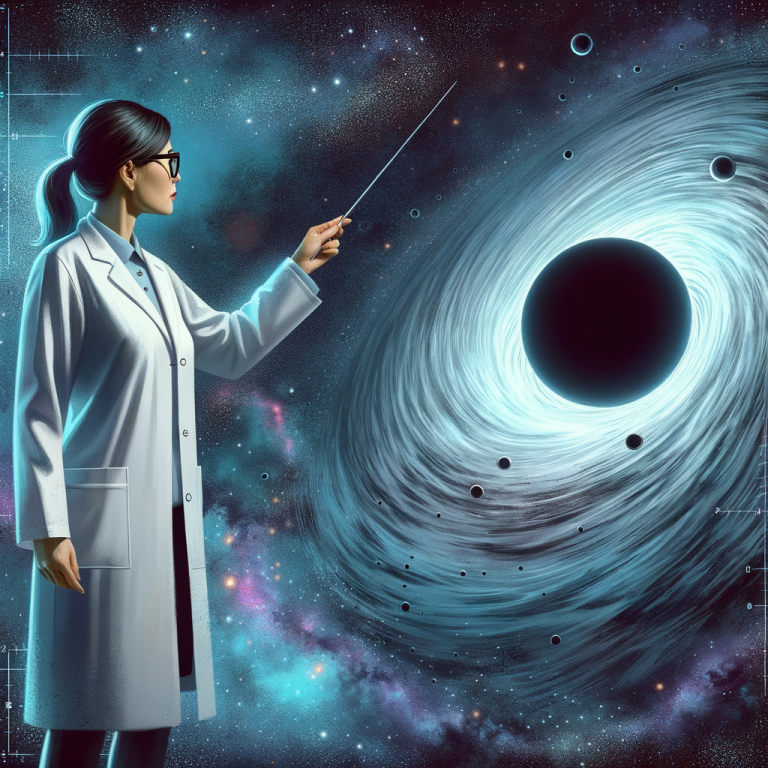Exploring the Size of Black Holes
Ever wondered how big a Black Hole is compared to a human? Let’s dive into the mind-boggling world of astrophysics and discover the immense scale of these cosmic giants. From comparing Black Hole sizes to other celestial bodies to highlighting their significance in the universe, get ready to be amazed by the sheer magnitude of these mysterious entities.
Black Hole vs Human: A Mind-Boggling Comparison
Discover the mind-blowing differences in weight and height between a black hole and a human being. Prepare to be amazed by the sheer magnitude of these cosmic giants and how they stack up against us mere mortals.
Size of Black Holes
Black Holes, one of the most enigmatic entities in the universe, come in various sizes that are truly mind-boggling. To put their immense scale into perspective, let’s compare the sizes of Black Holes to other celestial bodies.
Comparison of Black Hole sizes to other celestial bodies:
– The size of a Black Hole can range from a few times the mass of our Sun to billions of times larger.
– To measure the size of a Black Hole, scientists use the Schwarzschild radius, which represents the point of no return where even light cannot escape the Black Hole’s gravitational pull.
– In comparison, the largest known Black Hole, TON 618, has a mass equivalent to 66 billion (59.9 billion) times that of our Sun, making it a true cosmic giant.
When we consider the size of a Black Hole compared to a human, the difference is staggering. Imagine a Black Hole with a mass billions of times greater than our Sun, dwarfing the average human to insignificance in the vastness of space.
Black Holes truly showcase the immense scale of the universe and the wonders it holds, highlighting the significance of these mysterious cosmic phenomena in astrophysics.
Black Holes Vs Human Size Comparison
When considering the size of a Black Hole compared to the average human, the difference is truly staggering. To put it into perspective:
- A typical Black Hole can be millions to billions of times more massive than the average human (1.989 x 10^30 kg vs. 70 kg or 1.989 x 10^30 kg vs. 70 kg).
- The event horizon of a Black Hole, the point of no return where even light cannot escape, can be thousands of kilometers in diameter, while a human is only a few feet tall.
- The gravitational pull of a Black Hole is so immense that it distorts space and time, a concept far beyond the comprehension of human scale.
These comparisons highlight the immense size difference between Black Holes and humans, showcasing the vast scale of these enigmatic cosmic entities in relation to our own existence.
Black Holes Vs Other Celestial Bodies Size Comparison
When comparing the size of Black Holes to other astronomical objects, the sheer scale of these cosmic entities becomes truly apparent. Here are some key points to consider:
– **Massive Scale:** Black Holes are significantly larger than many other celestial bodies in the universe, including stars and planets.
– **Dwarfing Stars:** The size of a Black Hole can be millions of times greater than even the largest stars in the galaxy.
– **Galactic Giants:** Some supermassive Black Holes at the centers of galaxies can have masses equivalent to billions of suns.
– **Size Comparison:** When looking at the size of a Black Hole compared to a planet like Earth, the difference is staggering.
– **Impact on Surroundings:** The immense gravitational pull of Black Holes can influence the movement and behavior of nearby stars and planets.
In the vast expanse of the cosmos, Black Holes stand out as colossal entities that defy our traditional understanding of size and scale. Their presence in the universe serves as a reminder of the incredible diversity and complexity of the celestial world.
Conclusion
In conclusion, the size of Black Holes is truly awe-inspiring, showcasing the immense scale and significance of these cosmic entities in the universe. Through the comparisons made in this article, it is evident that Black Holes are on a completely different scale compared to other celestial bodies, including the average human.
Key Points:
- Black Holes are massive astronomical objects with sizes that dwarf even the largest stars and planets in the universe.
- When compared to the average human, the size difference is staggering, highlighting the vastness of Black Holes.
- By examining the size of Black Holes in relation to other celestial bodies, we can appreciate the incredible scale of these enigmatic phenomena.
Overall, the study of Black Holes continues to fascinate and challenge our understanding of the cosmos, emphasizing the need for further research and exploration in the field of astrophysics.


Comments are closed.